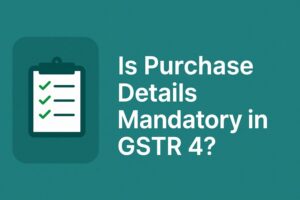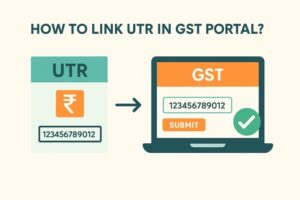No GST on Liquor: GST’s Impact on India’s Alcohol Sector
- 12 Aug 24
- 20 mins

No GST on Liquor: GST’s Impact on India’s Alcohol Sector
Key Takeaways
- Taxation of Liquor Remains a State Subject: In India, liquor has traditionally been taxed by states through excise duties and VAT, leading to significant price disparities across regions.
- States' Prerogative to Tax Alcohol: States hold the authority to impose excise duties and VAT on alcohol, which serves as a crucial revenue source, funding community welfare and development projects.
- Impact on Pricing and Consumption: The varied taxation rates across states influence liquor prices and consumption patterns, affecting local revenue generation and possibly encouraging interstate alcohol smuggling.
- Challenges and Debates: The exclusion of alcohol from the GST framework maintains the complexity of India's tax system and highlights the debate over state versus central control of alcohol taxation.
In India, the Goods and Services Tax (GST) is a watershed development in the area of taxation, as it aspires the creation of a single market. The latest GST Council, headed by Finance Minister Nirmala Sitharaman, has started a significant change in the tax treatment of alcohol, specifically extra-neutral alcohol (ENA), which is a talismanic ingredient in liquor production.
This article goes on to discuss the implications regarding the decision, the impact of the liquor taxation thereof, the GST on alcoholic beverages, cases of the liquor industry and how it has an effect on the pricing of liquor across the country.
Taxation of Liquor
In India, the taxation of liquor has traditionally been a state subject, with states imposing their own excise duties and VAT. So far, this has led to a growth in the liquor prices and, at the same time, the difference in prices between states. T
The omission of alcohol from the so-called central GST structure has been a point of criticism, although it can be considered an option as a way to simplify the tax system and even cut the final cost for customers.

Liquor, as a commodity, is excluded from the Goods and Services Tax (GST) regime, which was introduced in 2017 to unify India's vast and complicated tax structure into a single, comprehensive system.
Therefore, alcohol for human consumption is subject to the state's taxation laws since the government has decided not to do so at the federal level, which leads to a varied and frequently complex alcohol taxation environment across the nation.
- The State's Prerogative
Each state in India has the authority to levy its own taxes on alcohol, which include both excise duty (a type of tax imposed on goods for their production, licensing, and sale) and value-added tax (VAT).
This autonomy often generates states, a more common source of income for the states' treasury. The excise duty on alcohol is the most prominent source of revenue for states, which is then earmarked towards the welfare of the community and developmental projects.
- Excise Duty and VAT
Excise duty is the tax applied to the manufacture and sale of drinks within a state. The differential excise duty from one state to another is heavily influenced by numerous aspects, such as political considerations, societal policies, and economic reforms.
On top of the excise duty, states may also impose a VAT on the sale of liquor, further adding to the cost of alcoholic beverages. The combination of excise duty and VAT can lead to significant price disparities for the same bottle of liquor across different states.
- Special Cesses and Additional Taxes
Beyond excise duty and VAT, some states impose additional taxes or cess rates on alcohol for specific purposes. For instance, a state might introduce a health cess on liquor to fund healthcare projects or an education cess to support educational initiatives. These special taxes can further complicate the overall tax structure on alcohol and impact its final retail price.
- Impact on Pricing and Consumption
The varied taxation rates across states not only lead to price differences but can also influence consumption patterns. States with higher taxes might see lower consumption rates due to higher prices, or conversely, might drive consumers to purchase alcohol from neighboring states with lower taxes, affecting local revenue generation.
- Challenges and Debates
The exclusion of alcohol from the GST regime and the resultant state-level control over its taxation bring several challenges and debates. The debate continues to raise claims that alcoholic beverage tax code unification in states would lead to a uniform tax structure, a simplified process of tax compliance, and a possible lower rate of illicit alcoholic liquor.
On the one hand, the large revenue the states earn from alcohol taxes makes this matter a contentious issue that some states would never consider contributing to the central government's total control of alcohol taxation.
GST on Alcohol
The Goods and Services Tax (GST) introduced in India in 2017 aimed to consolidate multiple indirect taxes into a single tax system, enhancing efficiency and simplifying the complex tax structure that was previously in place.
However, alcohol for human consumption was notably excluded from the GST framework, remaining under the purview of state governments. By including alcohol in GST (Goods and Services Tax), the Indian government made a drastic decision that has been met with both economic and social consequences, which leads to the ongoing debate about the future of alcohol utilization as a tax tool in the country.
- State Control Over Alcohol Taxation
Consumption of liquor is one of the few products explicitly excluded from the GST, which means that states retain the exclusive right to levy taxes on alcohol.

This setting, however, states through imposing excise duty as well as VAT at different rates create vastly varied prices of alcoholic drinks across the country. States normally derive a large share of revenue from alcohol taxes, which finances from state budgets many welfare and social development schemes.
Arguments for Including Alcohol in GST
- Uniform Tax Rates: One of the main arguments for including alcohol under the GST is the potential for uniform tax rates across states, which would eliminate the current disparities in alcohol pricing. This could lead to a more predictable and stable market, benefiting both liquor consumers and businesses.
- Simplified Tax Regime: By bringing alcohol into the GST fold, the complexity of the current tax system could be reduced, making compliance easier and more efficient for manufacturers and sellers. This could also potentially decrease the administrative burden on state machinery.
- Increased Revenue for the Central Government: Including alcohol in GST could lead to increased revenue collection for the central government, which could then be redistributed among states through the existing revenue-sharing mechanism.
- Reduction in Illicit Alcohol Trade: A uniform tax rate could reduce the incentives for smuggling alcohol between states with differing tax rates, potentially curbing the illicit drink trade.
Arguments Against Including Alcohol in GST
- Loss of Revenue for States: The primary concern for states is the potential loss of a significant revenue stream. Alcohol taxes constitute a major portion of many states' revenues, and there's apprehension about the adequacy of compensation from the central pool of GST collections.
- Socio-Economic Considerations: States use alcohol taxation as a tool for social policy, adjusting rates to discourage excessive consumption or address public health concerns. Including alcohol in GST could limit states' ability to implement such policies effectively.
- Administrative and Implementation Challenges: Transitioning to a GST regime for alcohol would require overcoming considerable administrative and logistical challenges, including setting up a uniform policy that accommodates the diverse interests and concerns of all states.
Cost of Liquor
The cost of liquor in India is a multifaceted subject that encompasses various factors, including production costs, taxation, and additional levies imposed by state governments.
Understanding the cost structure of liquor is essential to grasp the economic dynamics of the drink market in India, where the pricing of alcoholic beverages can vary significantly from one state to another due to the decentralized taxation system.
- Production Costs
The initial component on liquor is the production cost, which includes the raw materials (such as grains, molasses, fruits, or other ingredients), labor, manufacturing processes, aging (in the case of spirits like whiskey), and packaging. These costs can vary based on the type of drinks being produced, the scale of production, and the quality of the ingredients used.
- Excise Duty and VAT
The most substantial addition to the cost of liquor comes from taxation, primarily in the form of excise duty imposed by state governments. Excise duty is a tax on the production and sale of alcohol by volume that significantly contributes to the final retail price of liquor. Such a local sales tax has vastly different levels between states, which in turn makes the same products available at very different prices.
In addition to excise duty, some states also apply value-added tax (VAT) on the sale of liquor. While not as universally applied as excise duty, VAT can further increase the price of alcoholic beverages where it is implemented.
- Additional Levies and Cesses
Beyond excise duty and VAT, states may impose additional taxes, levies, or cesses on liquor for specific purposes, such as funding welfare schemes or infrastructure projects.
They can be referred to as health cess, education cess, or discouraging surcharges used as a mean or as an inducement. The drinkers are additionally charged more for the liquor, which gets incorporated into its retail price.
- Transportation and Distribution Costs
Transportation and distribution costs also play a role in the final pricing of liquor. For instance, these expenses can be anything, such as the labour and raw materials needed to move the product from production to storerooms and outlets. Such costs depend on the geographic location as well as the standard and efficiency of the distribution network.
- Retail Markup
Finally, the retail markup is added to the cost of liquor, which is the margin that retailers add to cover their expenses and generate profit. This markup can vary depending on the location, type of retail outlet, and competitive dynamics in the market.
- State Policies and Price Variations
The decentralized approach to alcohol taxation in India means that each state's policies significantly impact the final cost of liquor. Some jurisdictions could have rigorous excise duties and numerous taxes as features, which would make them go up in price On the other hand, another jurisdiction might have the easiest excise duties possible so as to facilitate tourism and bar “bootlegging” practices.
Complex state matters involving social, economic, and political factors frequently have an impact on this decision.
State vs. Central Taxation
The taxation system in India is characterized by a dual structure that divides the fiscal powers between the central (federal) government and the state governments. This separation is really at the core of what we realize when taxation concerns alcoholic beverages, and their link between the central and local government is quite relevant.
The debate over state vs. central revenue is about fiscal freedom, money-making and the importance of policy implementation, alcohol revenues being the most relevant event.
Central Taxation
The federal government imposes central taxes on goods and services, as well as income taxes (aside from agricultural income, which is subject to state taxation), customs duties, and central excise (aside from alcoholic beverages for human consumption, narcotics, and some other items).
The launch of GST (GST) in 2017 marked the beginning of the continued central tax unification and the consolidation of multiple central and state taxes into a single tax system that issued a single market across the country and a single point of filing for all the taxes.
However, certain items, most notably alcohol for human consumption, petroleum products, and some aspects of tobacco taxation, were kept outside the purview of GST, allowing states to retain their taxing rights over these goods.
State Taxation
The state governments of each individual state impose taxes on the sale of goods and services within their borders (VAT, sales tax), state excise duty (particularly on alcohol), stamp duty on real estate transactions, and taxes on vehicles.
A state has significant authority in deciding the rates for local taxes, which in a way, allows them to decide the amount of levy that directly affects local situations.
Due to the omission of alcohol from GST, states alone have the prerogative of fixing the level of excise they charge on alcoholic products, which in turn gives rise to a wide range of excise rates concerning alcoholic beverages from one state to the next.
The Debate: State vs. Central Taxation of Alcohol
The division of taxation powers has led to a nuanced debate, particularly regarding alcohol taxation.
Arguments for State Control
- Fiscal Autonomy: States argue that retaining control over alcohol taxes is crucial for their fiscal autonomy, allowing them to mobilize significant revenues independently of the central government.
- Social Policy: State-level control enables governments to implement tax policies that reflect local social and cultural attitudes towards drinks consumption, such as imposing higher taxes to discourage excessive drinking.
- Local Economic Conditions: States can adjust taxes to respond to local economic conditions and policy priorities, such as using lower taxes to stimulate tourism.
Arguments for Central Involvement
- Uniformity and Simplicity: Advocates for bringing alcohol under central taxation, such as through GST, argue that it would simplify the tax structure, reduce administrative burdens, and eliminate interstate price disparities.
- Increased Revenue: Central taxation could potentially increase overall revenue by creating a more efficient tax collection system and reducing tax evasion and smuggling between states.
- Economic Efficiency: A unified tax system could lead to more rational consumption patterns and a more efficient allocation of resources across the country.
GST Council's Decision
The most recent move by the GST Council, to delegate taxation responsibility on distillate alcohol to respective states, will decide how the nation’s tax burden will be. FM Sitharaman highlighted that this measure would not only be a tool for state empowerment but also give states, a major contributor to revenues, greater control over taxation.

The GST Council's decision to cede the right to tax alcohol for human consumption to the states is a reaffirmation of this status quo.
Through the assignment of authority to maintain alcohol tax control to states, the Council put forward the diversity of factors which play an important role in the enfoldment of income generation for states and the objective of the GST system to unify and simplify the tax system in the whole of the country.
Implications
- State Revenues: This decision is a relief for state governments, as it ensures that they continue to have a substantial source of revenue at their disposal. Alcohol taxes constitute a major part of many states' revenues, and losing this to a centralised GST system could have necessitated compensation mechanisms or led to financial constraints for the states.
- Federal-State Relations: By respecting the autonomy of states in this matter, the GST Council has underscored the cooperative federalism that underpins India's fiscal governance structure. That is the tight line between federal government trying to set standard systems of taxation and states continuing to exert their independence.
- Market Dynamics: The result of that present situation is evident with the great differences in tax rates across different states of the country and leads towards problems such as cross-border illegal trade and, in the end, local arbitrage.
- Tax Structure Complexity: Keeping alcohol outside the GST maintains the complexity of India's tax system, with businesses and consumers needing to navigate a mix of state-specific taxes in addition to the central GST on molasses and other ingredients.
- Future Discussions: The GST Council's decision may not be the end of the discussion on alcohol taxation. It opens the door for future debates on whether a more unified approach could be beneficial or feasible, considering the economic, social, and political dimensions involved.
Impact of GST Council's Decision
Previously, the taxation of liquor was a complex interplay between state excise duties and VAT, with no central GST applied. This decision transfers the power to tax ENA fully to the states, potentially leading to varied taxation levels across the country, influencing both price and availability.
Market Impact
The market impact of this decision is multifaceted. Manufacturers may face varying tax burdens across states, affecting pricing strategies. Consumers could see price fluctuations, depending on how states decide to exercise their taxation rights.
| Area of Impact | Details |
|---|---|
| State Revenues | States maintain a critical revenue source, ensuring financial autonomy and the ability to fund state-specific projects. |
| Market Dynamics | Varied tax rates across states lead to differences in drinks pricing, affecting sales patterns and potentially encouraging smuggling or cross-border purchases. |
| Consumer Behavior | Tax-induced price disparities influence consumer choices, driving changes in consumption patterns and purchasing locations. |
| Policy Harmonization | The decision highlights challenges in achieving nationwide policy uniformity, with drinks remaining outside the unified GST framework. |
| Legal and Regulatory Complexities | Businesses face a complex regulatory landscape due to varying state-specific alcohol taxes and regulations, complicating compliance and operations. |
| Social and Public Health | States can use taxation as a tool for public health strategies but face challenges in effectiveness due to disparate policies and cross-border sales impacts. |
Legal and Ethical Considerations

The legal and ethical considerations surrounding the taxation and regulation of alcohol in India are complex and multifaceted, reflecting broader societal values, health concerns, and economic interests.
The legal framework establishes the parameters within which drinks is produced, distributed, and consumed, while ethical considerations influence public policy decisions related to alcohol taxation and regulation.
Legal Considerations
- Constitutional Framework: The Indian Constitution delineates the powers of the central and state governments, with the Seventh Schedule specifying that alcohol regulation and taxation fall primarily under state jurisdiction. This legal foundation supports diverse regulatory approaches and tax structures across states.
- State Excise Laws: Each state enacts its own excise laws governing the manufacture, sale, and consumption of alcohol. These laws set the legal drinking age, licensing requirements, operating hours for outlets, and penalties for violations, creating a patchwork of regulations across the country.
- Central Legislation: While the central government's role in directly regulating drinks is limited, it can influence alcohol policy through laws related to transportation, import-export, and inter-state commerce, as well as indirect taxation policies before the GST regime.
- Legal Drinking Age: The legal drinking age varies significantly across states, influenced by cultural, social, and health considerations. This variation presents legal challenges, especially in border areas where differing laws can encourage cross-border alcohol purchases.
Ethical Considerations
- Public Health: The primary ethical concern surrounding alcohol taxation and regulation is the impact on public health. High rates of drinks consumption are associated with various health issues, including liver disease, heart problems, and addiction. Taxation strategies are often used as a tool to curb excessive drinking, balancing revenue generation against health objectives.
- Social Impact: Drinking can have both social and family aspects—family splitting, domestic violent episodes, and accidents. Ethical considerations need to be introduced into the alcohol policy-making process, taking into account the harm that alcohol may cause while also ensuring the protection of individual freedoms.
- Economic Equity: The disparity in taxes applied on alcohol may be faced by people in lower-income groups, which could be an indicator of economic inequality and access. Politicians need to think about the equity of taxation policies and whether they are balanced in terms of all societal sectors.
- Addiction and Accessibility: Ethical debates also encompass the issue of addiction and the role of government in regulating access to drinks. Policies must navigate the fine line between preventing harmful addiction and overreaching into personal choices and freedoms.
- Public Opinion and Industry Responses: Public opinion on alcohol taxation is mixed, with some advocating for lower taxes to reduce illegal liquor consumption and others concerned about the societal impacts of easier access to drinks. Industry responses have also varied, with retailers and manufacturers of alcoholic liquor adjusting to the changing tax landscape to maintain profitability.
Future Outlook
- The future of alcohol taxation in India appears to be leaning towards more autonomy for states, potentially leading to a more fragmented national market. However, there's ongoing discussion about the possibility of a uniform tax rate for alcohol under the GST, which could simplify the tax structure and address some of the current disparities.
Conclusion
The GST Council's move to allow states to levy a separate tax on extra-neutral alcohol calls into question the age-old way of alcohol taxation in India. This move has an inevitable-effect on the price levels, consumption patterns, and the general market performance of liquor in the country.
This policy, at the same time, gives states a say but also raises issues of revenue generation and benefits for the public. In this context, the Indian alcohol scenario is undergoing a shift, and this will surely keep the discussion on alcohol taxation among policymakers, players in the industry, and the public active.
💡To learn more about how you can make all your business payments in one place with PICE, talk to one of our experts.
 By
By 

















